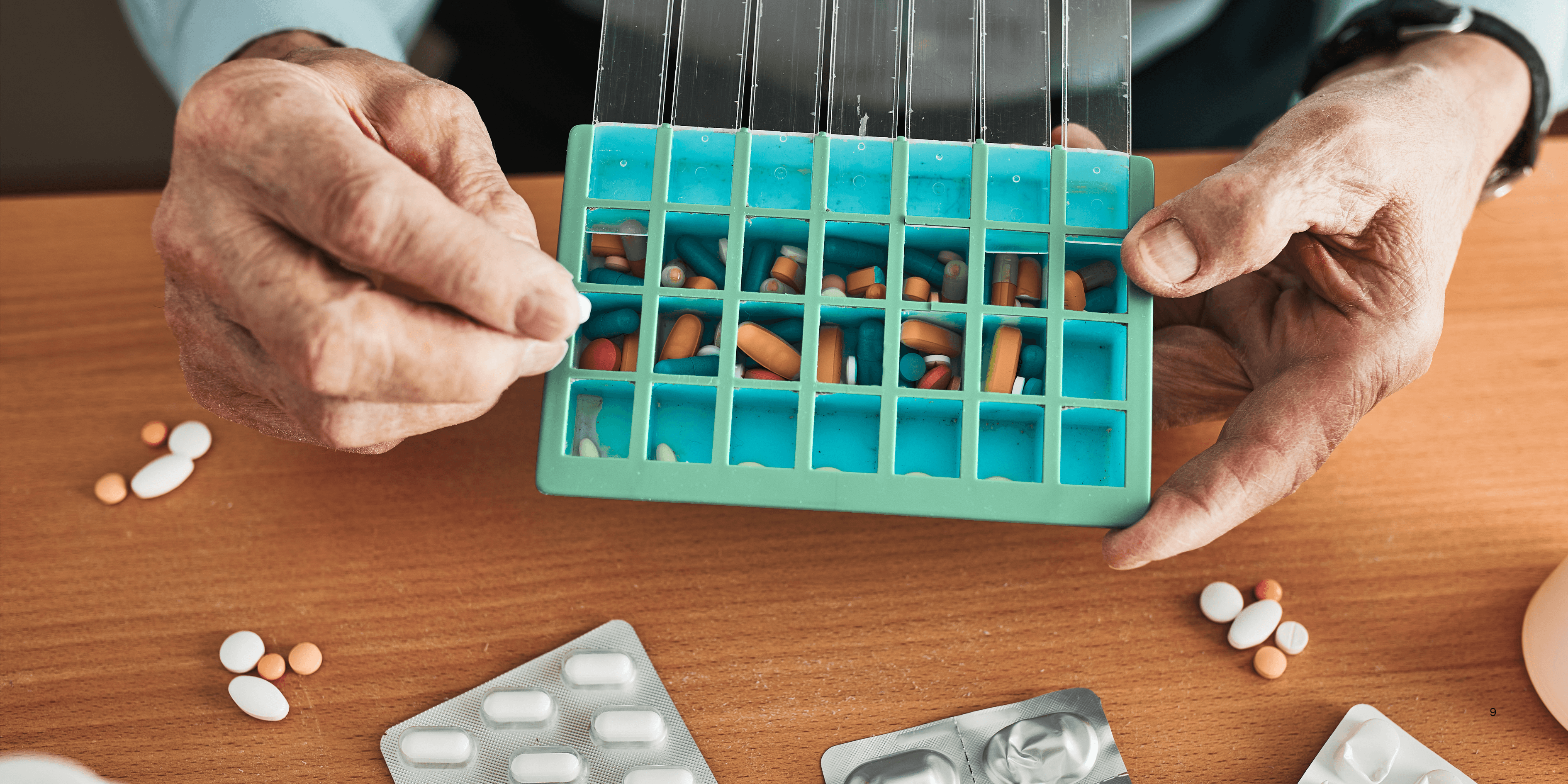
“
Handling medication management for the elderly is crucial for maintaining their health and well-being. As people age, they often face complex medication schedules and increased risks of adverse effects. Effective management helps prevent errors, supports adherence, and improves outcomes. 1
1
1
1
1
”
Managing medications in the elderly needs extra care, as aging affects how drugs are absorbed and processed, making dose adjustments key for safety and effectiveness. 1
Dr. William Osler emphasized that close observation and personalized medication care are crucial for improving seniors’ health and reducing harmful side effects. 2

Polypharmacy, the use of multiple medications, is common in elderly adults and increases the risk of drug interactions and side effects, requiring regular medication reviews by healthcare professionals.
Adherence to prescribed medication schedules improves significantly when elderly patients use pill organizers or reminder systems, helping prevent missed doses and accidental overdoses. 3
Many elderly patients experience cognitive decline, making clear medication instructions, simple regimens, and caregiver support essential for successful medication management. 4
Medication reconciliation during hospital admissions and discharges is vital to avoid duplications, omissions, or harmful drug interactions for elderly patients transitioning between care settings. 5
Side effects like dizziness, confusion, and falls often occur with certain medications in older adults and require close monitoring to adjust treatments as needed. 6
Over-the-counter drugs and supplements can interact dangerously with prescription medications in elderly patients, so all substances must be disclosed to healthcare providers. 7
Regular communication between elderly patients, caregivers, and healthcare providers is key to promptly addressing medication-related concerns or adverse effects. 8

Using a single pharmacy for all prescriptions helps pharmacists identify possible drug interactions and supports safer medication management for elderly individuals.
Visual impairments are common in older adults and may hinder reading medication labels, so large-print labels and verbal instructions improve understanding and adherence. 9
Proper hydration is vital for seniors, as dehydration can affect how medications work—especially diuretics and drugs cleared through the kidneys—raising the risk of side effects. 10
Family involvement in medication routines improves adherence, increases safety through monitoring, and offers emotional support, all of which contribute to better health outcomes for elderly individuals. 11
Medication reviews every six months or after health changes help ensure treatments stay effective, prevent side effects, and reduce the use of unnecessary or outdated prescriptions. 12
Certain medications can cause memory impairment or worsen cognitive decline in elderly patients, requiring careful selection and monitoring by prescribers. 13

Caregivers should keep a detailed medication list, including dosages, times, and prescribing doctors, to share with all healthcare professionals involved.
Proper storage of medications, away from moisture and heat, preserves drug effectiveness, which is especially important for elderly patients managing multiple prescriptions. 14
Regular physical assessments, including blood pressure and blood glucose monitoring, support safe medication use and identify adverse drug effects early in elderly patients. 15
Philosopher Hippocrates emphasized that “natural forces within us are the true healers,” highlighting the importance of holistic approaches alongside medications for elderly care. 16
Involving elderly patients in decision-making about their medications promotes autonomy, satisfaction, and better adherence, improving overall medication management success. 17


